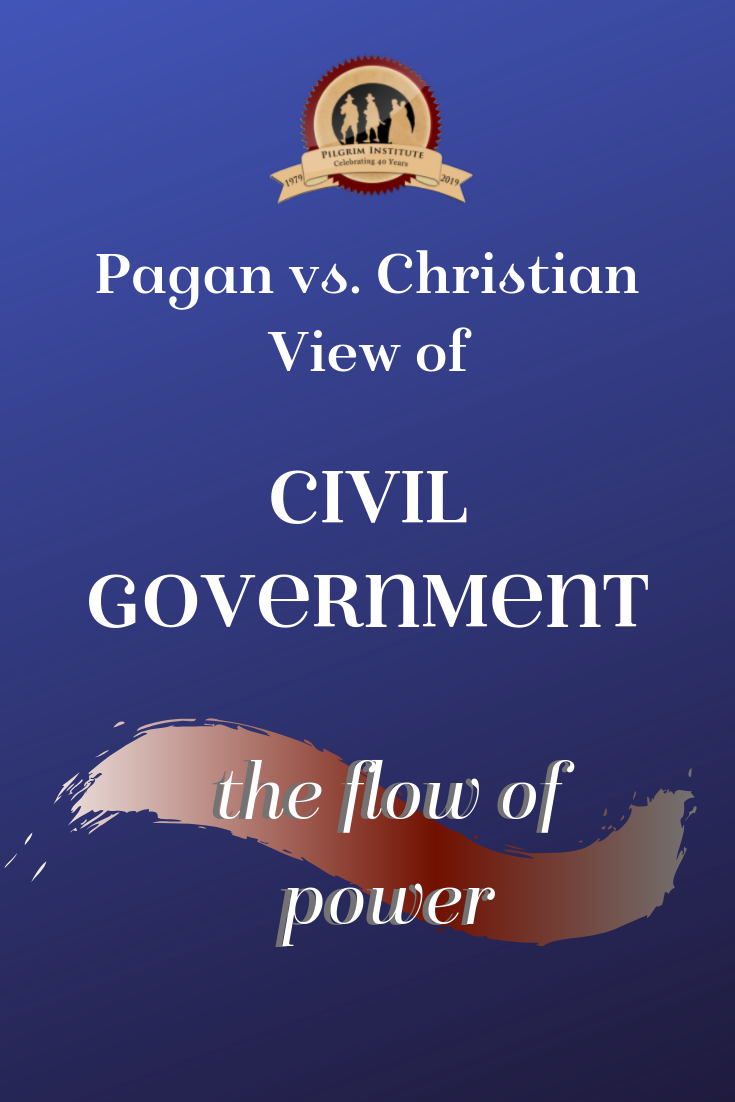Christian/Pagan View of Civil Government
by Ruth J Smith

Historian Verna Hall defined Civil Government as “the flow of power and force in society.” This simple statement holds many profound ideas. It also can be viewed from two perspectives: 1) a Christian view or 2) a Pagan (non-Christian) view.
For our discussion, we will look first at the definition from a Christian view.
Christian View of Civil Government
First, a flow of power implies something that is not set, but constantly changing, moving.
Secondly, what is it that is flowing – power and force. What is the source of that power and force? The Word of God teaches that all power comes from God. How does that power flow? God has given His Word in which He gives His wisdom for the individual. The power of God flows from His Word to the individual and is extended into each area of his life, including the civil sphere.
As this power is extended into each sphere, it is delegated authority, or representative government. With a Christian view of government, civil government has no power, except that which is delegated by the individual.
The following illustration represents this Christian idea:

View of Man and Government
However, history is filled with a different view of Civil Government, which is not based upon a Biblical idea, but based upon man’s view. However, in spite of man’s idea, I propose that all power does flow from God through His Word. But then the flow changes. Power is concentrated in one or a few individuals who control the many individuals in the nation. Throughout history these have been kings, dictators, or even a bureaucracy – non-elected governmental agencies who establish rules which must be obeyed.
Anytime the power is not delegated from the people, the people do not have the power to limit the authority which is extended to them.
The following illustration represents this idea:

Ask yourself why one would be called a Christian Idea and the other a Pagan Idea? Under which view would the individual have the greatest liberty? Under which view does the individual have the greatest responsibility?
As we consider our nation today, what do we see occurring in our nation?

Have you considered whose responsibility it is to preserve and restore the nation?
How do you pass that responsibility to the next generation? Why would studying history, particularly America’s Christian history, be so important in achieving this goal? Would it matter what approach to history is taught?
What influence does the Word of God have upon our nation? As a Christian, have you given serious consideration to the connection between the Word of God and the nation in which we live?
Does your heart yearn to secure the blessings of liberty for your children as they were secured for previous generations?
You’re not alone in that yearning! Pilgrim Institute receives emails and phone calls from parents, educators, and concerned citizens alike asking what they can do to effect change in their homes, churches, community, and nation.